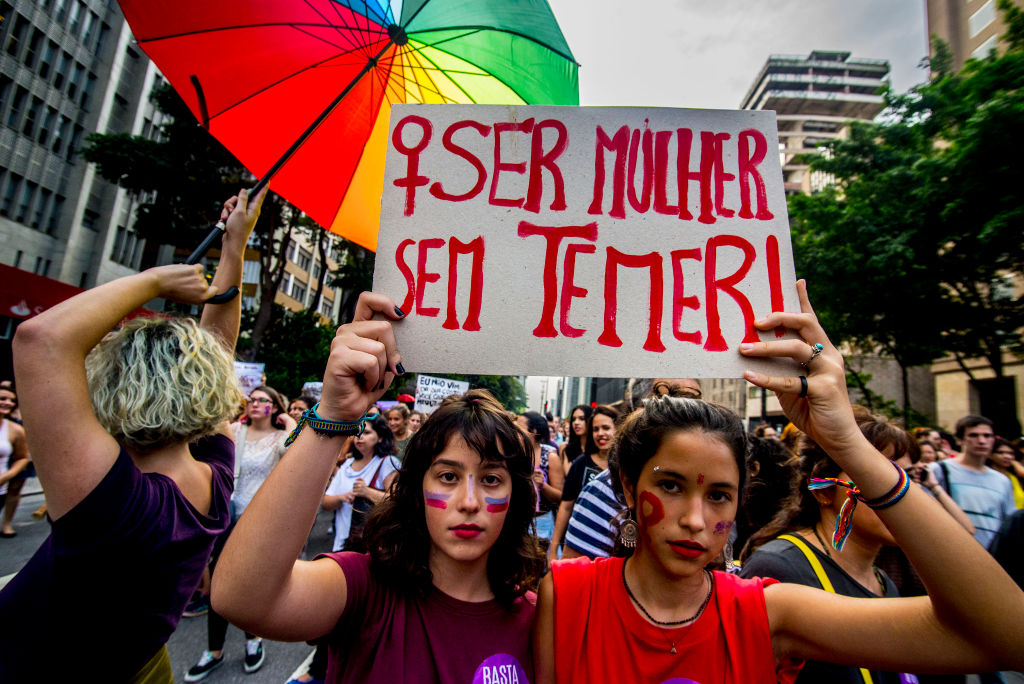Summary: Sports as a Tool for Innovation and Development
Summary: Sports as a Tool for Innovation and Development
Participants shared their perspectives on the effectiveness of youth sports programs throughout the Americas.
Summary
On January 31, AS/COA and the Inter-American Development Bank (IDB) hosted a program on sports as a tool for innovation and development. Over 125 participants attended the half-day seminar in which representatives from the public and private sectors, civil society, and academia came together to discuss how sports are changing youth and their communities throughout the Americas.
Panel One:
- Alejandra Villafuerte, Director of Program Implementation, Save the Children International (Bolivia)
- Diego Ruiz, Vice President of Global Public Policy and Government Affairs, PepsiCo
- Mauricio Heredia, General Director, Fundación Rafa Marquez (Mexico)
- Verónica Escobar, Executive Vice President, FUDELA (Ecuador)
- Maritza Vela, Project Specialist, Inter-American Development Bank (Moderator)
Sports for Development Projects in the Region
Leaders of IDB projects and partners discussed the obstacles and rewards of running sports programs in Latin America. For some children, attending soccer practice is the only physical activity they get during the week, which is important in a region with high rates of youth obesity. For other children, these community programs offer the only meal they will eat all day. Some young women in poor communities become pregnant at an early age or are responsible for taking care of their younger siblings and preparing food while their parents are out at work, limiting their ability to participate in sports. Engaging young women in sports programs at a young age strengthens their self-esteem and gets them involved in activities outside of the home. Sports programs also work to reverse the cycle of violence as youth learn to interact constructively and appropriately with each other through active teamwork. Between the institutions represented by the panelists, thousands of children in marginalized communities throughout Latin America now have the opportunity to gain new skill sets through sports.
Panel Two:
- David Flynn, Program Manager, Laureus USA
- Kirk Friedrich, Co-Founder and Executive Director, Grassroots Soccer
- Mark Griffin, CEO, PlayRugby USA
- Shellie Pfohl, Executive Director, President’s Council on Fitness, Sports and Nutrition
Measuring the Success of Sports Programs
Panelists highlighted the fact that stakeholders must be shown the return on investment of sports programs, as well as the effectiveness and social impact of these projects. A program can measure a number of outcomes, such as health, school attendance rates, classroom grades, and self-confidence. But monitoring and evaluating programs is not an easy process. Panelists agreed that this process takes an extensive amount of time, money, and training for it to be effective. They noted that data collection and evaluation must become a part of the program’s day-to-day operations and not just an occasional task at the behest of donors. Measuring the failures and successes of sports for development programs are crucial for both organizations and investors in order to make a meaningful impact, panelists said.
Panel Three:
- Caitlin Morris, Senior Director for North America, Access to Sport, Nike, Inc.
- Jimmy Lynn, Managing Partner, JLynn Associates and Full-time Faculty Member, Georgetown University’s Sports Industry Management Graduate Program
- Josep Cortada, General Director, Fundació FC Barcelona
- Marco Llinas, Public Affairs and Communication Manager, Coca-Cola Colombia
The Importance of Partnerships
The implementation of sports for development projects requires resources, skills, and commitments from different groups in society in order to be successful. The panelists stressed the importance of widening the net to give more children the opportunity to be involved in structured sports programs. Campaigns are particularly focused on empowering girls to participate in athletic events in an attempt to change the current dynamic within communities. Coca Cola’s Marco Llinas encouraged private companies to work together in this space, despite being market competitors. Nike’s Caitlin Morris added: “We must do more than get kids on the field; we need to make sure they are enjoying the experience.”







